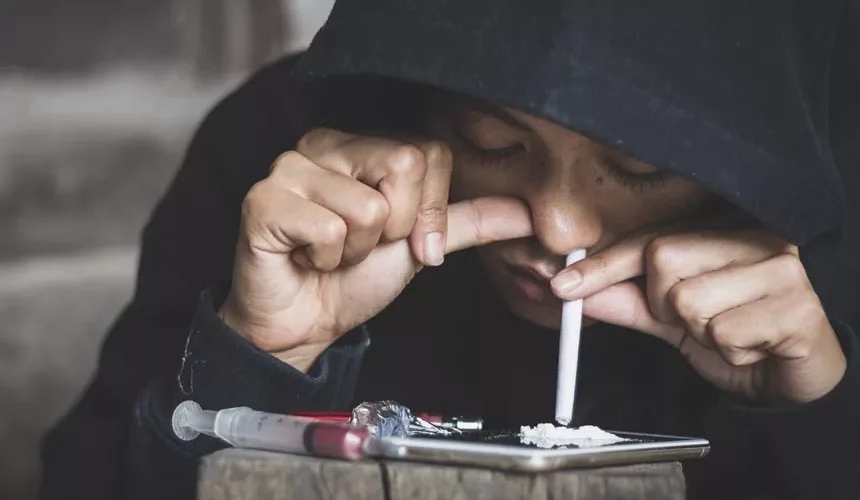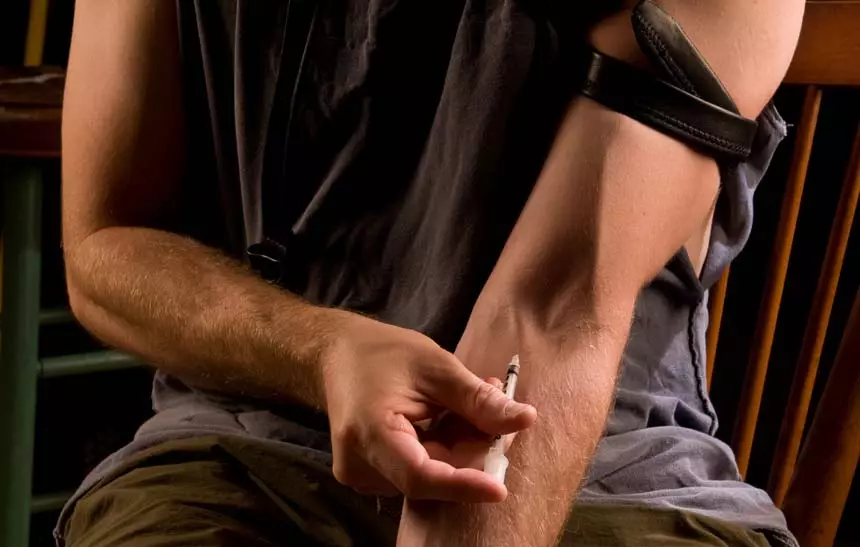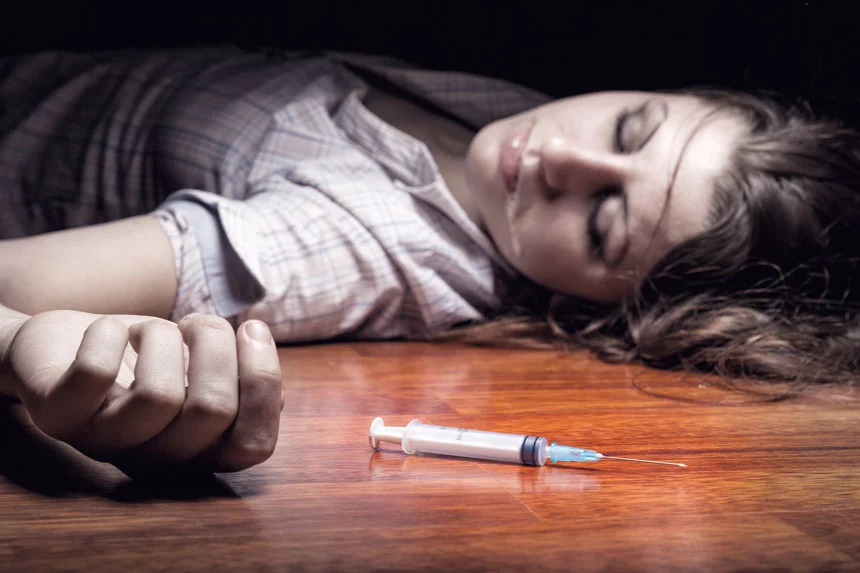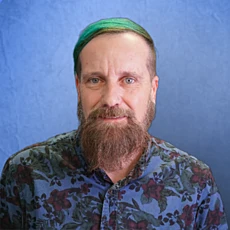What is Heroin?
Table of Contents
- What is Heroin?
- How is Heroin Used?
- What Are the Effects of Heroin Use?
- Understanding Heroin Addiction
- How Long Does it Take to Become Addicted to Heroin?
- How Does Heroin Abuse Affect the Body?
- Is it Possible to Overdose on Heroin?
- The Importance Of Rehab In Treating Drug Abuse
- How to get Heroin out of your System
- Heroin Addiction Treatment Options
- FAQs on Heroin Addiction Treatment:
- Heroin Addiction Treatment: Found Here
- Medically Reviewed By
Heroin is an opioid derived from morphine, and it is usually found in the form of a white or brown powder. It can also come in the form of a black, tar-like sticky substance, which is commonly referred to as “black-tar heroin.” Heroin addiction treatment is needed when someone has become dependent on the substance for their daily lives.
Keep reading to learn more about breaking this dangerous dependence and find effective ways to get help!
Heroin is currently classified as a Schedule I controlled substance by the Drug Enforcement Administration (DEA), meaning that it has an extremely high risk for abuse and, unlike other opioids which fall under the category of prescription drugs, no accepted medical uses.
Keep reading to find out more regarding effective forms of treatment for heroin addiction!
How is Heroin Used?
Heroin can be used in several ways, the most common of which is taking it through smoking, snorting, or injecting it directly into the bloodstream. With more pure forms of heroin, most people will smoke it in order to achieve a faster and more intense high.
It is also common for heroin users to combine heroin with other illegal drugs and substances. The most popular of these combinations is mixing heroin with cocaine, a process that is commonly referred to as “speed-balling.”
What Are the Effects of Heroin Use?
Heroin quickly enters the user’s system, traveling directly to the brain and binding to opioid receptors and other cells within this organ. In particular, heroin interacts with those that control feelings of pain and pleasure, as well as the user’s heart rate, sleep patterns, and breathing.
This interaction can produce extreme feelings of euphoria and pleasure, which can cause individuals to want to use the drug repeatedly. However, over time, this will result in a tolerance to heroin.
This means that, in order to achieve the desired effect, the user will have to heroin in continuously higher doses and/or more frequently. This, unfortunately, will cause them to develop dependence and addiction.
Understanding Heroin Addiction
When it comes to substance abuse, most people do not develop a drug addiction with the intention of purposely doing so. After all, these behaviors can be extremely harmful not just to themselves, but to the people around them, as well.
In most cases, people will begin abusing opioid drugs (or other drugs) as a way of relieving themselves when dealing with stressful or difficult situations, whether these be happening internally or externally within their surroundings.
With heroin, the euphoric rush and relaxing high this drug produces can offer an irresistible way to escape one’s potentially painful reality. Unfortunately, heroin’s addictive nature makes it all too easy to form a drug dependence on it.
How Long Does it Take to Become Addicted to Heroin?
Most people know that heroin is an addictive drug, and will begin using it despite being aware of its high risk for abuse. However, what most fail to realize is just how quickly this drug can cause them to form physical dependence on it.
Of course, every person is different, meaning it is difficult to determine an exact timeline for how long it may take for someone to form a heroin dependence. While one person might become addicted after one use, someone else may use heroin for several weeks before this happens.
Furthermore, physical addiction and physiological addiction can develop at separate times. Overall, however, it can be assumed that once heroin enters your system, it is almost guaranteed that you will become addicted to this drug.
With that being said, the best way to prevent heroin addiction is to simply just never use it to begin with. While the euphoric high heroin causes can be tempting, it is not worth the devastating consequences it can have on a person’s mental and physical well-being. Unfortunately, you are likely all too familiar with this fact, whether seeking treatment options for yourself or a loved one.
How Does Heroin Abuse Affect the Body?
Whether you have been using heroin over a long period of time, or have just begun experimenting with this drug, the damage that can occur from this is extensive and serious. In many cases, these side effects can last for years even after heroin use has stopped.
Short-Term Effects
People who use heroin will generally report feeling a “rush,” in which they experience a surge of pleasure or euphoria. However, there are other more uncomfortable side effects that may occur as a result of heroin use as well, including:
- Dry mouth
- Flushing of the skin
- Heaviness in the limbs
- Nausea and vomiting
- Severe itching
- Brain fog
- Poor consciousness, or “nodding off”
Long-Term Effects
Over longer periods of time, chronic heroin abuse will often result in far more severe side effects. Many, of which, will need medical attention, and may include:
- Insomnia
- Collapsed veins (for those who inject the drug)
- Damaged tissue inside the nose (for those who snort heroin)
- Heart infection & complications
- Skin abscesses
- Constipation and stomach cramping
- Liver and kidney disease
- Respiratory complications (i.e. pneumonia)
- Depression
- Anxiety
- Sexual dysfunction for men
- Irregular menstrual cycles for women
Injection Drug Use, HIV, and Hepatitis
Intravenous drug use, a particularly common method of heroin use, presents a high risk of contracting the HIV and hepatitis C (HCV) viruses, which are predominantly transmitted through contact with blood or other bodily fluids.
As it is not uncommon to share injection drug equipment or reuse unsterilized tools, the spreading of these diseases is all too common amongst heroin users, as well as those who abuse other street drugs.
Is it Possible to Overdose on Heroin?
Heroin overdose is the most deadly side-effect of heroin addiction, occurring when someone takes too high a dose of this drug, overloading their body with more of it than it can handle. This will cause their system to shut down.
The most common symptoms associated with a heroin or opioid overdose include physical symptoms such as:
- Shallow breathing or gasping
- Pale skin
- Blue-tinted lips and fingertips
The Importance Of Rehab In Treating Drug Abuse
In order to successfully overcome one’s heroin dependence and stop using this drug, you will need to go through an extensive heroin addiction treatment program. These programs can help you rebuild your life and live addiction free.
Professional treatment facilities offer various different recovery programs and behavioral therapies that will help you work through the reason why you started to use heroin in the first place and learn to overcome these challenges in a healthy, constructive way.
How to get Heroin out of your System
The first step of the recovery process is getting the heroin physically out of your system. This is known as detox or detoxification. There are numerous different methods to help a person go through detox. One of the most common, however, is quitting heroin cold turkey.
By abruptly stopping heroin use the person will go through withdrawal in which they will experience many symptoms ranging from fever/sweats, irritability, nausea/vomiting, numbness in different areas of the body, and numerous other ailments.
Quitting heroin cold turkey is thought to be the most common method of detox but it is also one of the most dangerous. Cold turkey detox can result in much more severe acute withdrawal symptoms, such as seizures.
Other methods of heroin detox include addiction medicine to stop heroin abuse. Two well-known methods of drug-assisted detox include Suboxone and methadone. Suboxone and methadone are similar in the fact that they are designed to gradually lower the opiate dosage an addict takes to help adjust the body accordingly.
Usually, these two drugs are prescribed by a doctor at a local Suboxone or methadone clinic or at a treatment center. The usage of several medications is carefully monitored to ensure that those overcoming opioid use disorders are not taking too much and are gradually weaning off.
The goal is to take less and less each day until eventually, you are eventually able to stop using completely. This method is shown to be safer than cold turkey and makes this process far more comfortable by reducing heroin cravings and helping to prevent relapse.
What are the Withdrawal Symptoms from Heroin?
Someone recovering from heroin addiction may experience a number of withdrawal symptoms, including:
- Muscle and bone pain
- Insomnia
- Restlessness
- Cold flashes
- Diarrhea
- Excessive vomiting
Heroin Addiction Treatment Options
Effective treatments allow you to attend programs that will successfully help you change your life. The effects can be seen almost immediately. The ability to handle emotions and think clearly in order to make decisions in a healthy way is one of the greatest benefits of treatment.
Personal relationships with family and friends will begin to strengthen and a sober support system will be in place in order to help you with any problem you are facing so that you never have to go back to abusing heroin again.
By attending professional treatment programs, you can take a stand for yourself and save your life from heroin abuse. You are the only person who is capable of stopping and changing your life, but with the help of addiction treatment providers, you do not have to do it alone.
The question remains, what is used to treat heroin dependence and addiction? The answer is not always clear. Each person is unique and different and what might work for one might not work for the other.
Through professional treatment centers, you will be able to attend a treatment program that is designed to fit each of your own personal recovery needs in order to ensure you are getting the best care possible.
Medical Detox
Heroin addiction treatment can be broken down into three different steps. The first step is withdrawal. Once you make the decision to stop using heroin you must go through heroin detox in which all the heroin will leave your body.
This process can last several days or even longer in some cases. The effects of detox will be seen as soon as a few hours after the last use. Detox centers are in place to help you go through this step, which is arguably the most difficult, of the addiction treatment process.
Inpatient Treatment
Similar to detox programs, inpatient treatment centers require you to live at a rehab facility throughout the duration of your treatment process. This allows you to receive regular support and access to recovery resources.
These programs will likely also offer therapeutic treatment options to help address any underlying mental health issues that may have caused and are currently contributing to your addiction in the first place.
According to the Substance Abuse and Mental Health Services Administration (SAMSHA), co-occurring substance use and mental health disorders are quite common. This is because many people turn to drugs and alcohol to self-medicate the pain caused by these disorders.
This, unfortunately, is never an effective option, and may only result in further mental health complications, as well as a variety of physical health complications as a result of these substance use disorders.
Outpatient Treatment
For those who are unable to meet the time or financial requirements of more extensive treatment options, outpatient services may be a better recovery option for them. These offer a more flexible and independent approach to overcoming addiction.
With outpatient treatment, individuals will typically participate in sober support groups, and individual or group therapy sessions, as well as relapse prevention, vocational training, and social skill-building services.
Behavioral Therapy
The second step is therapy and treatment. Through inpatient or outpatient services, people will be there to help the addict learn how to live heroin-free. This includes different behavior therapies and programs that aim to teach and assist each person in working through problems and challenges they face on a daily basis.
In addition to behavior therapy, most treatment centers offer other activities such as horseback riding, swimming, volunteering, sports, journaling and other things that will get each person back into living life.
Yet the need for behavioral therapies in order to ensure you can receive a full heroin recovery is still needed. Some of these behavior therapies include:
- One-on-one therapy
- Support groups
- Family therapy
- Cognitive Behavioral Therapy (CBT)
- Relapse prevention programs
Aftercare Programs
The third and final step is active maintenance. Follow-up care and outpatient services are available for those who feel the need to continue therapies and have an additional support system to prevent heroin relapse when they return home.
These services are in place to help you get back into the swing of life on a day-to-day basis without drugs and additionally help with any triggers you might face in early recovery. Additionally, other forms of support can come from friends and family and 12-Step programs.
FAQs on Heroin Addiction Treatment:
How Do I Know That I Need Professional Help for Drug Abuse?
There are several signs a person can look out for when trying to determine if a loved one may be struggling with an opioid use disorder. According to the Diagnostic and Statistical Manual of Mental Disorders (DSM-5), these can include both physical and behavioral signs, such as:
- Taking opioids in larger amounts or over longer periods of time than originally intended
- Continuously unsuccessful efforts to cut down or control opioid use, even if there is a genuine desire to do so
- Spending significant amounts of time and money acquiring and using an opioid, or recovering from its effects
- Experiencing strong drug cravings
- Consistently having difficulties at work, school or home due to opioid use
- Continuing to use opioids despite this causing persistent or recurrent social or interpersonal problems
- Giving up previously enjoyable social, occupational or recreational activities to continue opioid use
- Recurrent opioid use in situations in which it is physically hazardous (i.e., driving or operating other heavy machinery)
- Using opioids despite knowing this may exacerbate persistent or recurrent physical or psychological problems
- Developing a tolerance to an abused opioid, such as needing to use more often or in higher doses in order to achieve desired effects
- Experiencing withdrawal when not using, or using more frequently to avoid symptoms of opioid withdrawal
Is Heroin Addiction Treatment Covered By My Insurance?
Individuals with a drug or alcohol addiction have multiple options in terms of paying for treatment for their substance use disorder. The types of rehab facilities and other addiction treatment services that are generally covered under most health insurance plans include:
- Inpatient and outpatient services
- Medically assisted detox
- Medication-assisted treatment (MAT)
- Dual-diagnosis treatment for co-occurring disorders
- Continued recovery care
Unsure what level of coverage you have with your insurance provider? Our FAR representatives can help you find out what addiction treatment and mental health benefits are covered under your specific plan and help you find a treatment provider that will be able to serve all of your care needs, at an affordable price.
Heroin Addiction Treatment: Found Here
Only through detox and treatment will a person be able to stop abusing heroin. While there are many different methods available to treat heroin addiction, these all have one thing in common: Long-term continued work.
The ability to stop using heroin is there, you need only to reach out and ask for help. Call the 24/7 Find Addiction Rehabs hotline now, and we will help connect you with programs that provide treatment for heroin abuse and help you achieve sobriety, today!
Bryan was born in Philadelphia and remains an ardent supporter of Philadelphia sports. After attending FSU and FAU where he majored in writing, Bryan ventured out to follow in the footsteps of his idols, running straight into drug addiction. After being arrested by the President’s Secret Service, Bryan finally started to rebuild his life and beat that monkey off of his back through writing, playing music, and studying Buddhist philosophy.
Despite still having the occasional struggles with mental health, Bryan strives to be a little bit better a person each day. With the support and love from a loyal family, and kind-hearted and generous friends, Bryan tries to help people vanquish their own personal demons as he did and bring more love and beauty into a pessimistic world.






